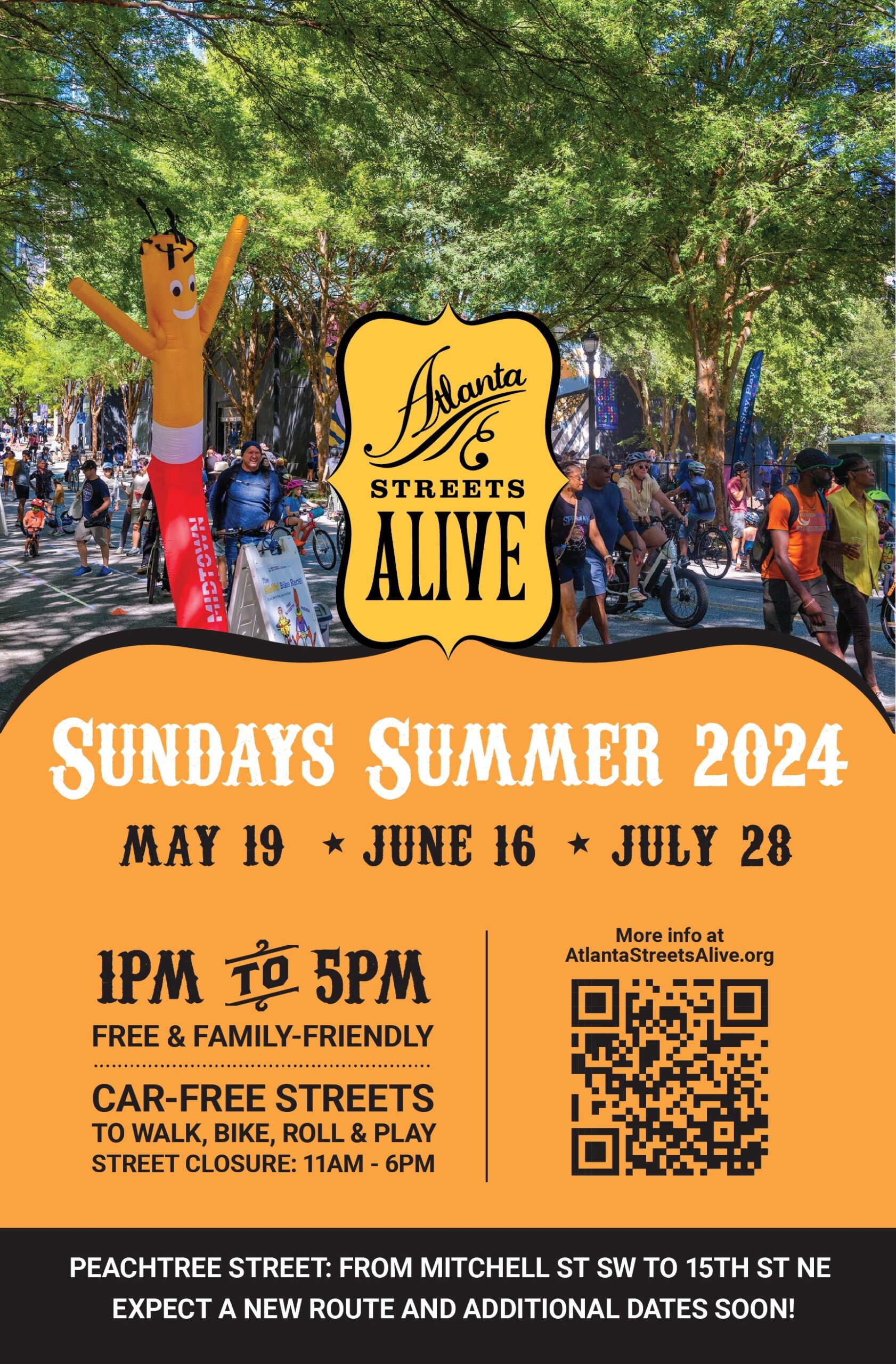Propel ATL is a small but mighty team working to transform Atlanta’s streets into a safe and inclusive place for pedestrians and cyclists. One of those people helping accomplish that goal is Rebecca Serna, the Executive Director of Propel ATL. Serna got her start in transit advocacy after her car broke down and she had to rely on MARTA, but quickly realized that it wasn’t what it needed to be. During this time, she went back to grad school and got an internship at the State Department of Transportation. One of her mentors opened her eyes to some of the challenges in the city. “My eyes were opened to the possibilities and also the ways in which our transportation infrastructure wasn’t really as good as in other cities.” It wasn’t as sustainable; it didn’t give people the option to live without a car as easily as some other large US cities did.” When an opportunity arose at Propel ATL, Serna seized it, and the rest is history.
A Visionary Evolution: The History of Propel ATL
Propel ATL, formerly known as the Atlanta Bicycle Coalition (ABC), was founded in 1991 by local environmental activists who wanted to improve conditions for cycling. In their first years of operation, they secured bike parking lots for the 1996 Olympics, installed bike racks throughout the city, convinced MARTA to add bike racks to all buses and bike access on trains, organized rides to help promote bike lanes, and did many more things that helped shape the city’s cycling community. For the next decade, the organization advocated and hosted events surrounding the cycling community. In 2021 they merged with Pedestrians Educating Driver on Safety (PEDS) and became Propel ATL. When the group merged, the mission became to bolster advocacy to reclaim Atlanta’s street as safe, inclusive, and thriving space for people to ride, walk and roll.
Milestones in Advocacy: A Safer Atlanta for All
Since the merge, the organization has achieved multiple significant milestones to keep Atlanta safer. In particular, Vision Zero, is one program Serna is really proud of. Serna describes the campaign as “a safe system approach where we’re trying to eliminate traffic fatalities and serious injuries.” The campaign is a worldwide initiative to achieve zero traffic fatalities. The idea started in Sweden and has since been adopted by 27 American cities. Propel ATL proposed the plan in March 2020, but it was delayed due to the pandemic. In April 2024, the city released the action plan to the public. This roadmap will hopefully save hundreds of lives in the city. “We can reduce speeds and make streets safer by design in ways that will prevent those crashes from becoming deadly,” Serna said. The plan requires 92 actions to achieve the overall goal, Propel ATL is aiming to have that goal done by 2040. According to the plan, there needs to be committed leadership, consistent resources, and community support to make this plan successful.
Serna mentions that it’s important to know that the majority of people hit and killed in Atlanta are Black. “That’s because of the historic disinvestment in Black neighborhoods, redlining, the lack of sidewalks, and the concentration of high-speed roads, basically highways, through neighborhoods in Atlanta.” These neighborhoods also have some of the lowest sidewalk coverage in the city. Propel ATL is working with these neighborhoods to support safer streets designs and reduce speeds in the area to help inform measurable steps that can help improve safety in these communities.
Propel’s advocacy has also led to other things like protected bikes in downtown Atlanta, zoning changes for pedestrians, expanded their walk ATL program, and other things that have made the city safer.
Empowering Communities: Education and Engagement

From the beginning, the group has focused on educating people about bike and street safety. One of their most popular programs is bike classes. These classes are for people who have never ridden a bike as well as those wanting to learn bike safety skills. Serna said these classes are a great opportunity for people who would like to ride their bikes more but are afraid to ride in the city, “the idea is that a lot of people would like to bike and don’t feel safe enough to do so because our infrastructure doesn’t really support that. We don’t have the connected network yet. But if you empower people with it’s basically like defensive driving, but for biking,” Serna said.
Another popular event that the organization helps organize is Atlanta Streets Alive. This event started in the city in 2010 and is based on a similar event in Colombia. The idea is to open streets to foot traffic instead of vehicles. For one day a month the city shutdown a popular street to vehicle and people are free to walk, bike, skate, or scoot. “It gives people the experience of what it’s like to not come second or third or fourth on a street but really to put people first,” Serna said. Propel ATL oversaw the event until after the pandemic when ownership was transferred to the City of Atlanta. Propel ATL still plays a big part in organizing the event. The event kicks off this year on Sunday, May 19 on Peachtree Street, check out atlantastreetsalive.org for additional dates.
Looking Ahead: A Pathway to Progress
Looking to the future, Propel ATL aims to continue their advocacy for a safer city. They are currently considering how they can prepare for the 2026 World Cup to ensure safety for Atlantans and visitors. They are also looking at changes within the city’s public transportation system. “For example, one of our long-term goals is for buses to arrive on a 15-minute frequency because in cities where you have that type of high frequency transit service, it really improves people’s quality of life,” Serna said.
To learn more about some of the projects Propel ATL is working on or to learn more about their advocacy go to letspropelatl.org.

